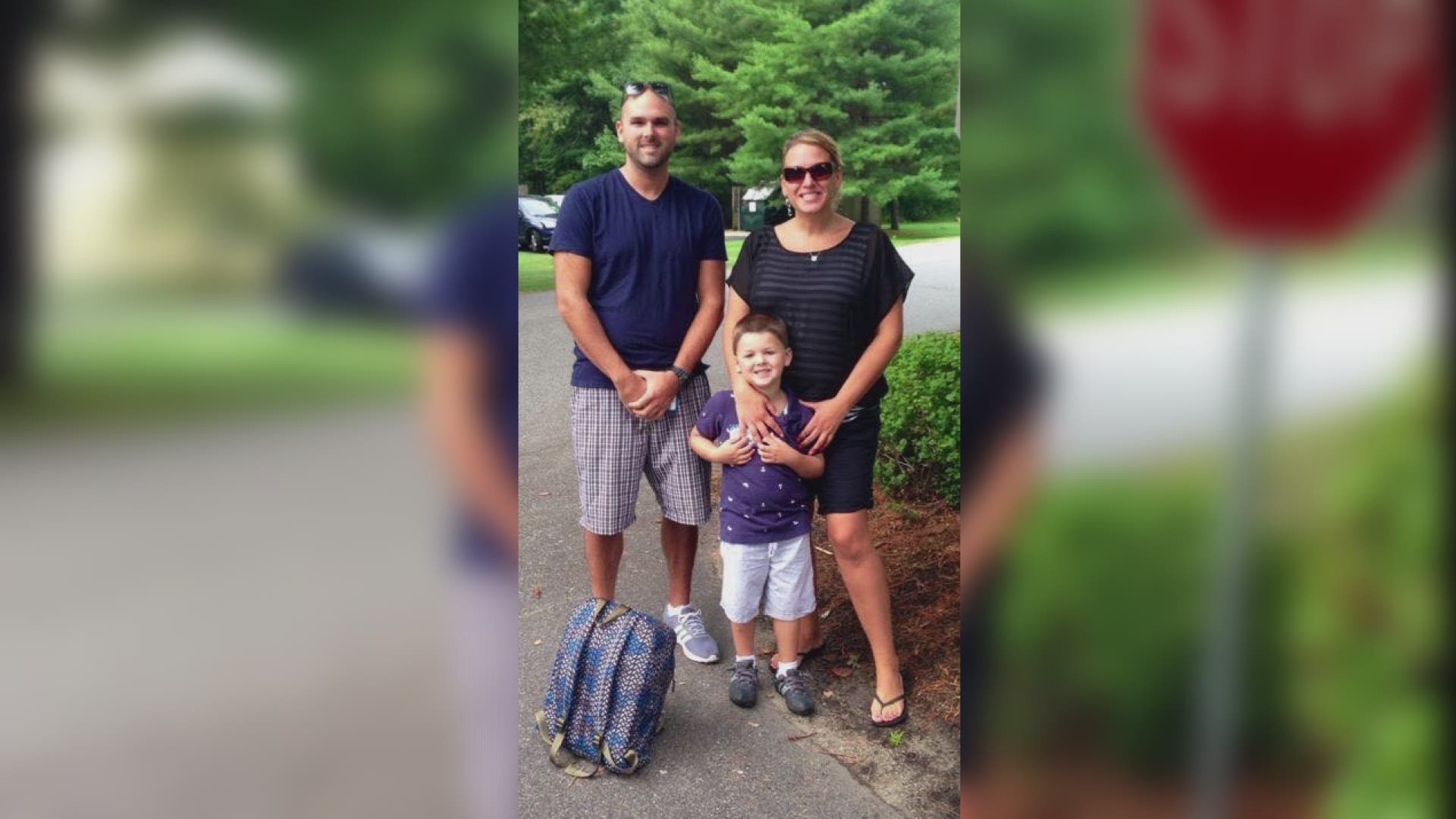PORTLAND, Maine — The holidays are a time of family gatherings, traditions and celebrations.
However, experts say the loss of a loved one, whether it was recent or decades ago, can be more painful during the Christmas season.
Creating new holiday traditions and building a support system of family and friends is helping a Westbrook mom and her 10-year-old son on their journey of healing.
Matt Briere was just 35 years old when he died suddenly -- thrusting Shannon Moore into the darkest place of her life.
"My son was 6 years old and I needed to tell him that his father had died. It was the hardest thing I had to do in my life," Moore said.
But at the Center for Grieving Children, facilitators showered Shannon and her son Carter with love. Both started going to weekly support group meetings. Carter played and did activities with other kids his age, who also lost a loved one.
Shannon found refuge among people who understood her pain.
"To lose your child's parent is completely overwhelming but coming here you don't feel alone," Moore said.
They clung to that support to get through every day -- and the family's first Christmas without Matt. Shannon learned to pay close attention to how Carter was feeling about doing things without his Dad, such as going out and looking at Christmas lights.
That same Christmas, Carter received a blanket from his grandmother with pictures of him and his father -- something he always has with him.
With the support of peers and programs at the Center, Shannon also found her voice.
"Holiday gatherings can be overwhelming, different events you might have gone to the Christmas before as a family and now that is devastating to you. You learn how to set boundaries, start new traditions and ask for help if you need it," Moore said.
The Center recommends starting a tradition to remember a loved one. Something simple, like a tree ornament, lighting a candle, or a table with a photograph in their honor. These ideas can also can be used to help start a conversation, which often can be awkward.
"People don't want to make you sad, but guess what you are already sad. It's not like you are not thinking about it. Very often people are afraid to bring it up because they don't know what to say," Center for Grieving Children Executive Director Ann Heros said.
Heros says it's not okay to ask someone who is grieving how they feel or to say to them, "that person is in a better place." Instead, show love and concern.
It's been a little more than four years since Matt died. Carter is now ten years old. He and his mom are still processing their pain, but the 5th grader doesn't keep it bottled inside.
"He is able to emotionally say, 'mom I am not doing ok, I really miss Dad,' and for that I will always be grateful," said Moore.
Rather than becoming debilitated by loss, this mother and son are forging a new life — while continuing to grieve.
For information and resources available through the Center for Grieving Children click here.
SAMHSA’s National Helpline is a free, confidential, 24/7, 365-day-a-year treatment referral and information service (in English and Spanish) for individuals and families facing mental and/or substance use disorders.
SAMHSA’s National Helpline, 1-800-662-HELP (4357)
For more information on resources from SAMHSA.

